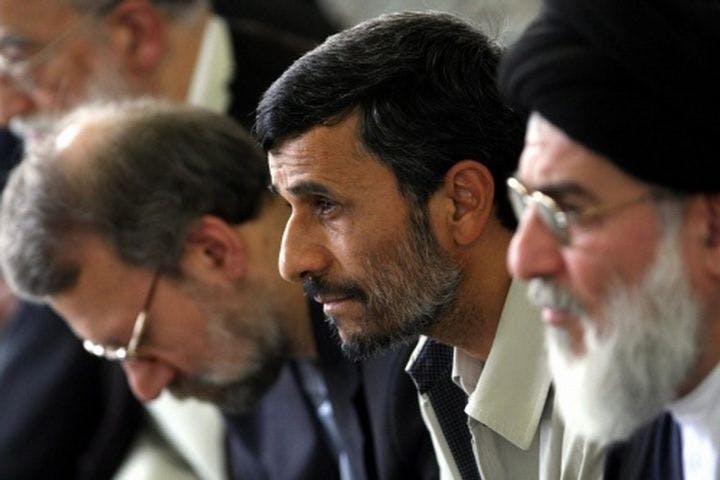Spring 2009
First Steps with Iran
– The Wilson Quarterly
There are signs of change in what one scholar calls “the poisonous domestic political climates in both Tehran and Washington.”
President Barack Obama’s proposal to open a diplomatic dialogue with Iran, despite the initial lukewarm response of Iran’s leaders, could signal a momentous change in what Gary Sick calls “the poisonous domestic political climates in both Tehran and Washington.” But, Sick cautions, “Iran is neither the most dangerous nor the most pressing problem to be faced by the new administration” in the region. That dubious distinction goes to the wobbling nations of Pakistan and Afghanistan; the ongoing war in those two states already carries the unsettling possibility that a stockpile of nuclear weapons could fall into the wrong hands.
Bucking the conventional wisdom about Iran, Sick describes the country as merely “a midlevel power with a largely unpopular and dysfunctional government headed by a firebrand populist president with limited power.”
While Sick acknowledges that Iran’s influence in the region has grown tremendously in the past seven years, he believes that has mostly come about as an unintended consequence of U.S. actions. In 2001, the United States attacked and dispersed Iran’s worst enemy to the east, the Taliban, and then in 2003 it brought down Iran’s worst enemy to the west, Saddam Hussein, which led to the creation of a friendly majority-Shia government in Baghdad.
What of Iran’s development of nuclear technology? Sick calls that threat “overblown,” basing his assessment on the fact that the country has only a single, non-functioning nuclear power plant, even though it commenced its nuclear program in the mid-1980s. “According to U.S. intelligence,” Sick reports, “Iran terminated its tabletop experiments with nuclear weaponization in 2003, after Saddam was defeated and the Iraqi threat to Iran was eliminated.” The International Atomic Energy Agency continues to monitor and inspect the 6,000 low-capacity centrifuges Iran possesses, and even though the country produces low-grade uranium, its leaders publicly declare nuclear arms to be anti-Islamic. Although the IAEA remains suspicious of Tehran’s nuclear intentions, it “has found no credible evidence of a nuclear weapons program in Iran,” says Sick.
Even if the conventional wisdom about the danger Iran poses is right, the time will never be better for Washington to engage with Tehran, argues Sick, a senior research scholar at Columbia’s School of International and Public Affairs. Ahmadinejad is expected to face a serious challenge when he runs for reelection in June, and talking with the United States can only improve his shaky position. During his time in office, Ahmadinejad’s practice of handing out “liberal quantities of cash and funding for public projects” has drained funds from Iran’s coffers, already depleted by falling oil prices. His erratic policies have also “isolated Iran internationally, driven away foreign investment, and tempted external military intervention.” He has largely ignored the Rahbar (Supreme Leader), Ayatollah Ali Khamenei, who will have a major say in who is permitted to run against Ahmadinejad in the upcoming election.
Sick believes that the Obama administration should reaffirm a tenet of the U.S.–Iran Algiers Accords of 1981, that the U.S. will not “intervene, directly or indirectly, politically or militarily, in Iran’s internal affairs,” an assurance that would greatly ease tensions between the two countries. It should also get behind a proposal floated during the Bush administration to establish an interest section in Tehran, “in effect a consular office in Iran staffed by U.S. diplomats.” Neither of these gestures “will resolve the major differences between the United States and Iran concerning [Iran’s] nuclear program, its military support for organizations like Hezbollah, Hamas, and Islamic Jihad, and its opposition to an Israeli-Palestinian settlement.”
Those issues are unlikely to be resolved before Iran’s presidential election anyway. But Iran can fill a vital role in “maintaining stability and calm during a period of transition,” Sick says, as the Obama administration begins to draw down troop levels in Iraq while increasing them in Afghanistan. (The current schedule calls for U.S. forces to leave Iraqi cities and suburbs by the end of June of this year, and for all combat forces to be out of the country by August 2010.) By taking small diplomatic steps now, the United States can lay the groundwork for Iran to play a responsible role in regional politics, Sick believes.
THE SOURCE: “The Republic and the Rahbar” by Gary Sick, in The National Interest, Jan.–Feb. 2009.
Photo courtesy of Flickr/SS&SS
